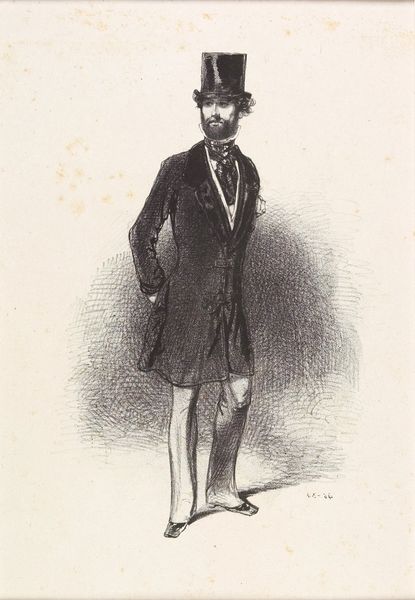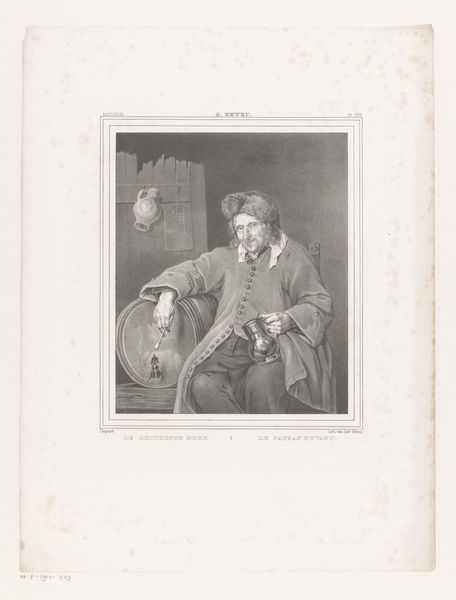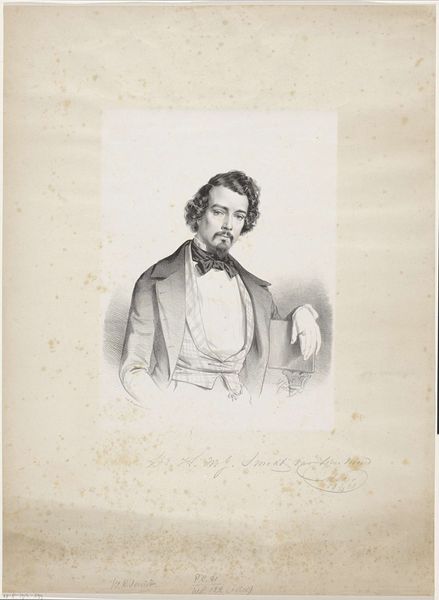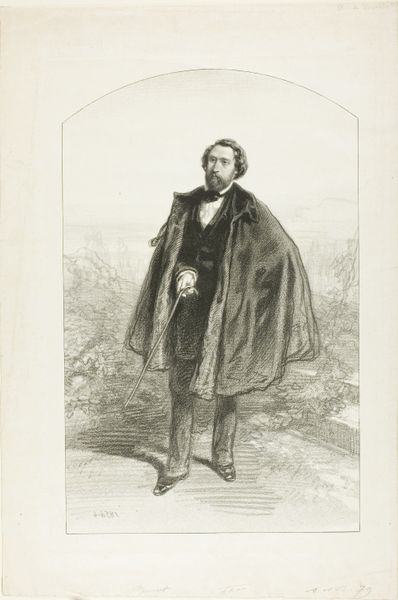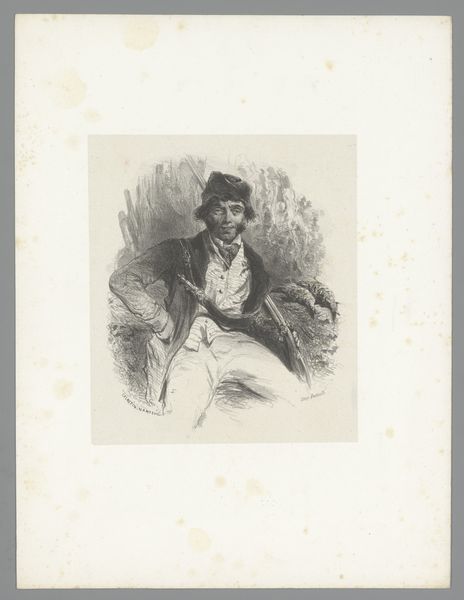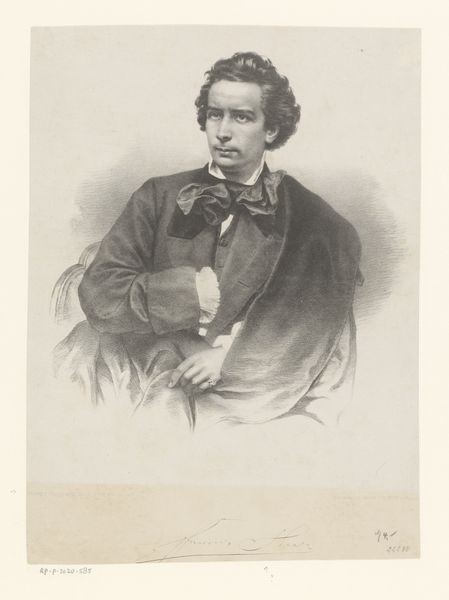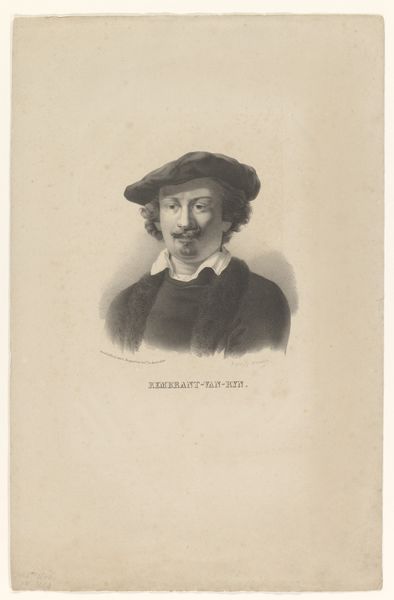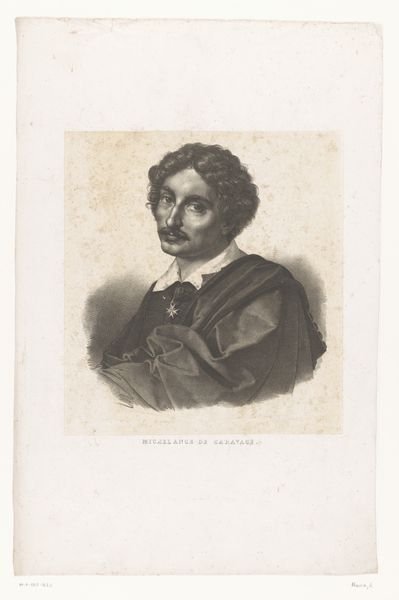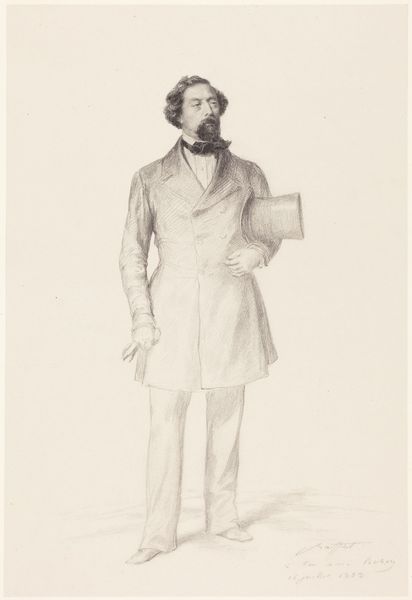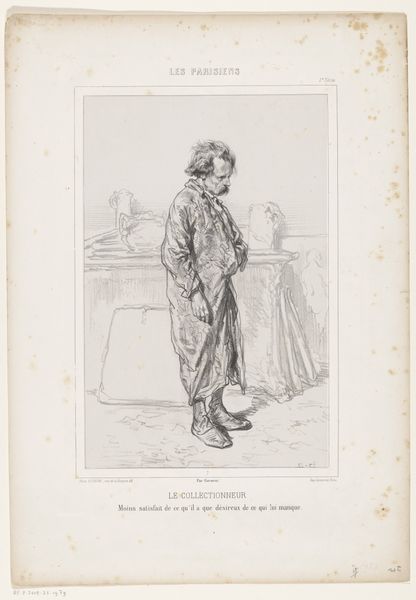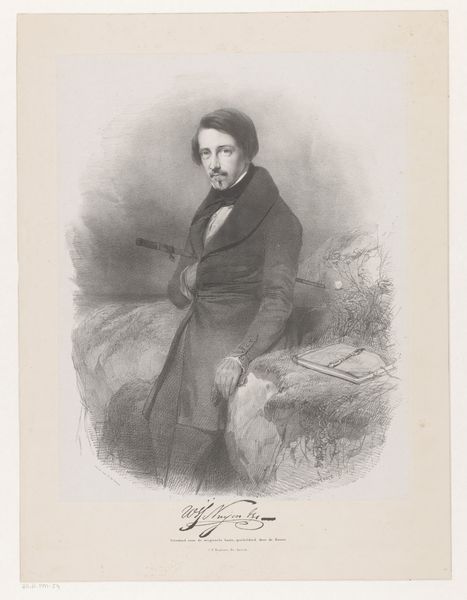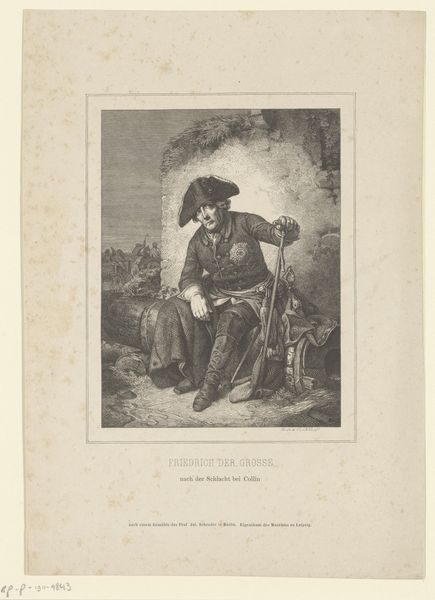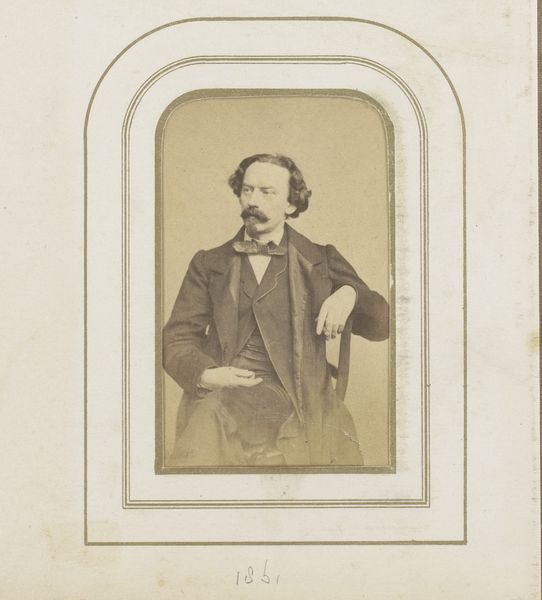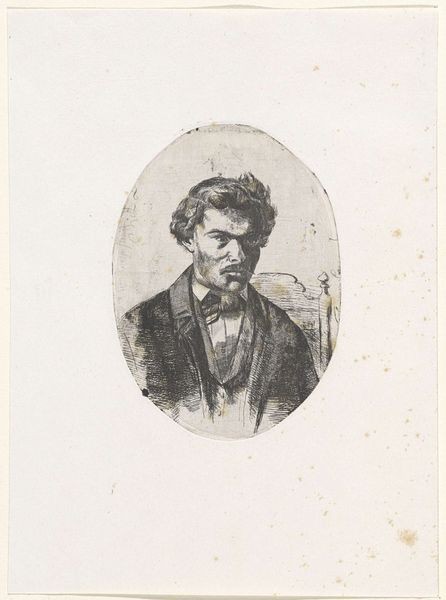
drawing, lithograph, print, paper
#
portrait
#
drawing
#
self-portrait
#
lithograph
# print
#
study drawing
#
paper
#
pencil drawing
#
romanticism
#
france
#
genre-painting
#
graphite
Dimensions: 224 × 156 mm (image); 318 × 244 mm (sheet)
Copyright: Public Domain
Curator: This is Paul Gavarni's Self-Portrait, created as a lithograph on paper in 1842. What strikes you most about it? Editor: It exudes a palpable sense of melancholic introspection, almost a Byronic ennui. Curator: Notice how the stark contrasts created through the lithographic process define the composition. Light falls dramatically across his face, highlighting the contours of his cheekbones and emphasizing the intense gaze. The cross-hatching is incredibly nuanced. Editor: Right, and that dramatic lighting also casts the subject in a certain narrative light, doesn’t it? It speaks to the romantic ideal of the suffering artist, grappling with his inner demons and societal constraints during a period of rapid industrial and social change in France. Curator: Precisely! The materiality of the print—the velvety texture achieved by the lithographic crayon—also enhances this romantic sensibility, harkening back to the drawn line. It's a very intimate medium. Editor: Intimate and carefully constructed to reinforce a certain performative identity. Think about what Gavarni is not showing us: his workspace, other elements that contextualize him as working-class... Curator: However, the meticulous details, even in this seemingly informal pose, suggests his awareness of self-presentation, or self-commodification, particularly given his prominent status in genre painting at the time. Editor: True. Self-portraits are always performances, but his status definitely amplifies that read. There are elements here that align him more with the bourgeoisie or bohemian classes. He uses those visual cues to distance himself, perhaps? Curator: We can trace Gavarni's formal and theoretical mastery in this work through his meticulous approach to values, tonality, and line, all synthesized into a cohesive whole that's as striking as it is emotionally evocative. Editor: Absolutely, and by interpreting Gavarni’s decisions—the staging of the self, the chosen medium—we unveil how artists consciously negotiate their identities within a larger socio-political frame. Thanks for walking through it!
Comments
No comments
Be the first to comment and join the conversation on the ultimate creative platform.
